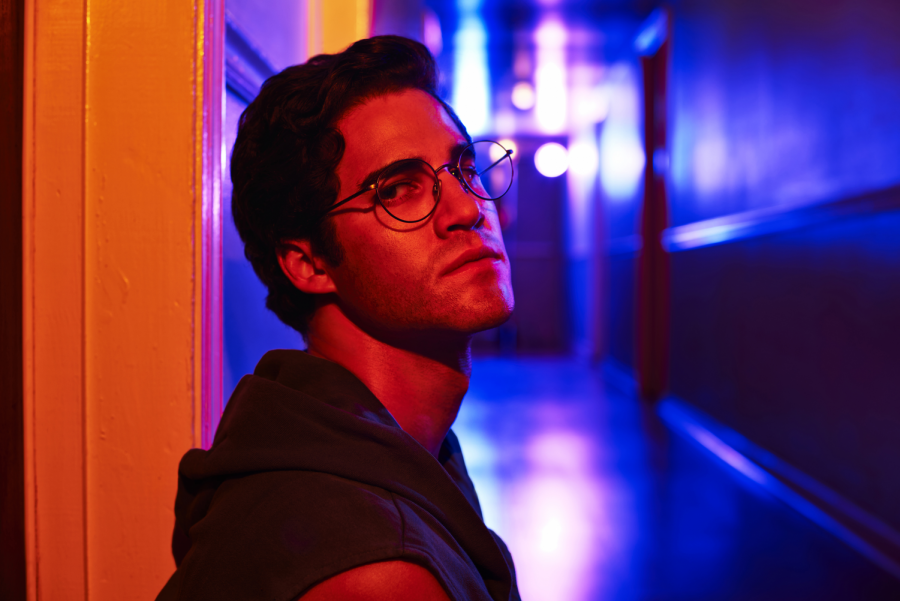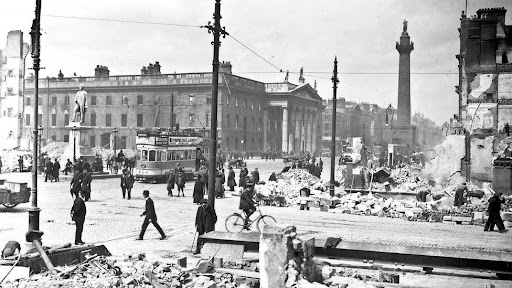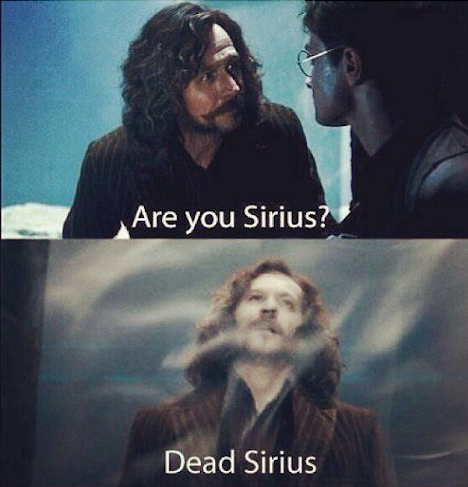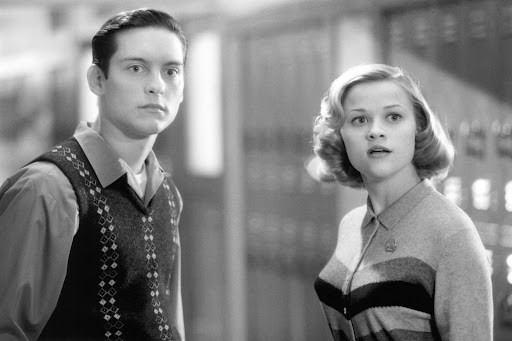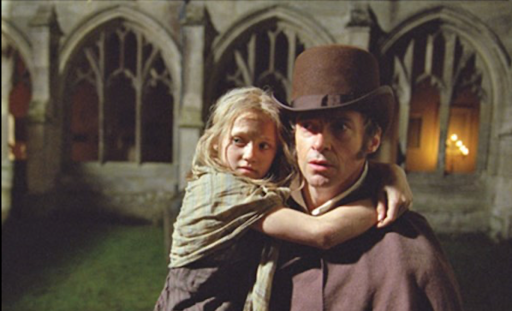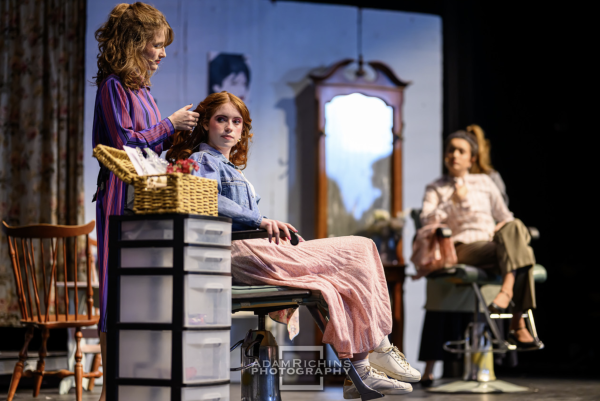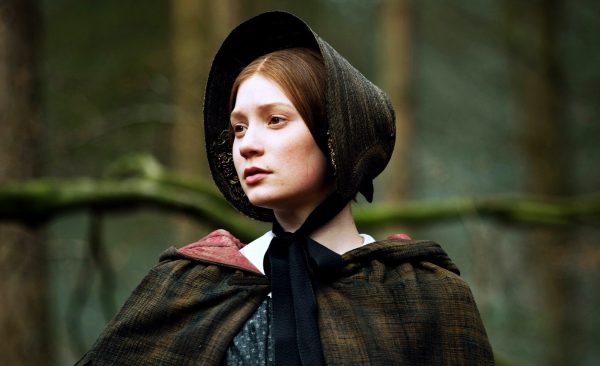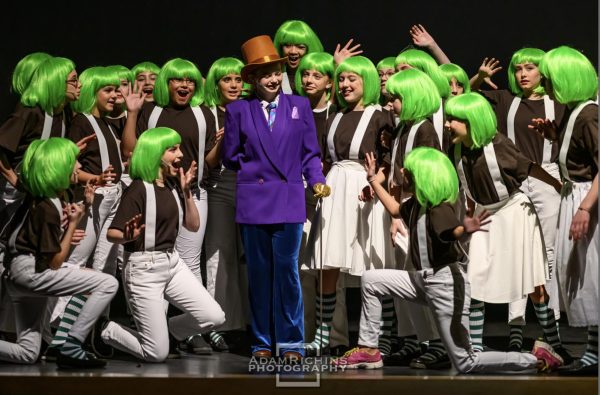American Crime Story Season 2: An Exercise in Empathy
**DISCLAIMER: This show can get very graphic and is definitely not advisable for younger viewers.**
Over February break, I binged The Assasination of Gianni Versace: American Crime Story. I’m not usually into darker, grittier shows, but when I heard it was produced by Glee creator Ryan Murphy and stars Darren Criss (also from Glee), I knew I had to check it out. American Crime Story is an anthology series with each season telling the story of a high profile American crime. Season 2 focuses on the life of Andrew Cunanan, the man who murdered Gianni Versace, famous Italian fashion designer, in 1997, as well as 4 other men. This show delivered suspense and drama, as any good crime show does, but it also told the story in a unique way with an added mystery ingredient- empathy. I was expecting a straightforward crime mystery, but what I got instead was a complex character analysis, told with sensitivity, that offered insight into the mind of a serial killer.
The key aspect of the show that makes it great is the order in which it is told. It doesn’t build up to the murders like most shows would, but instead tells the story backwards. The first scene shows Versace, this beloved and well known figure, murdered by a man that we have not yet been formally introduced to. We don’t know his name. We don’t know his story. We just know he’s a killer. We, as the audience, experience this scene the way that the world experienced Versace’s murder- a nameless unknown man committing a haneaous crime toward someone who the world loved so dearly. At this point, we have only seen Andrew at his worst moment, so we only know him as this heartless monster.
After this intense opening scene, the story jumps back in time and we see Andrew as a seemingly normal, fun loving young man. This transition is jarring. What happened? How did this person become the man we just watched kill Versace?
From there, each episode is a step backwards chronologically in Andrew’s life. Each episode peels back a layer of this complex story and offers new insight into the life of this person. It’s as if we are uncovering the mystery of his life from the perspective of the detectives who are simultaneously shown trying to catch Versace’s murderer- piece by piece and out of order. By the time we reach the end (or rather, the beginning of Andrew’s story), we see that this man isn’t some purely evil villain, but a real person who did terrible things. Through watching him struggle with a difficult home life as a child, romantic disappointments, drugs, and an overall feeling of rejection from the world as a gay man living through the AIDS epidemic, we realize that the emotions that led him down such a dark path are deeply human emotions that we have all experienced. It all boils down to his desire to be seen and loved. He wants to be special and successful, but goes about achieving these things in all the wrong ways. Between the expert writing rooted in in-depth research and the stellar acting by Darren Criss, we come to know Andrew as a deeply flawed, yet human character. I found myself momentarily forgetting that I was watching a serial killer’s origin story.
Darren Criss, who plays Andrew, told Vulture in 2018: “I’m in the business of empathy. That is my job. I’m in the business of finding as many common denominators with myself to another person… We have so much more in common with the worst person we can think of than not.” Criss doesn’t attempt to justify his character’s actions, but he also doesn’t put himself above Andrew. He approaches this role with what I see as a truly Christian understanding of human dignity, stemming from the idea that one’s actions, however wrong, don’t make them less human or less deserving of empathy. He went on to say: “My goal is that people watching can really question their own sense of empathy. Not for murdering people or anything, but for understanding where these things come from.”
I certainly had that takeaway from watching the show. By watching Andrew’s life unfold in reverse order, I saw my initial assumptions and judgements about this person change and eventually melt away. After reaching back as far as Andrew’s childhood, the show finally snaps back to show the aftermath of Versace’s death and Andrew’s unfortunate end in the final episode. After watching his story play out, we return to the moment that first introduced us to Andrew- his lowest point. After everything I’d seen, both the highs and the lows of Andrew’s life, I found myself sympathising with him — something I didn’t think was possible after watching the opening scene of the season. That’s not to say that his actions were excusable -he still did unforgivable things that aren’t justified by his difficult past- but the show gave me a better understanding of the person behind those actions,
This show could have just been another typical murder mystery narrative. But instead, thanks to Darren Criss’ stellar portrayal and the show’s multilayered storytelling, it was a thought-provoking experience that analyzed how a person just like you and me could find themselves heading down such a dark path. It brought humanity and empathy to such a dark, tragic story.
Lucy Stefani ‘21, Arts & Entertainment Editor
21lstefani@montroseschool.org

